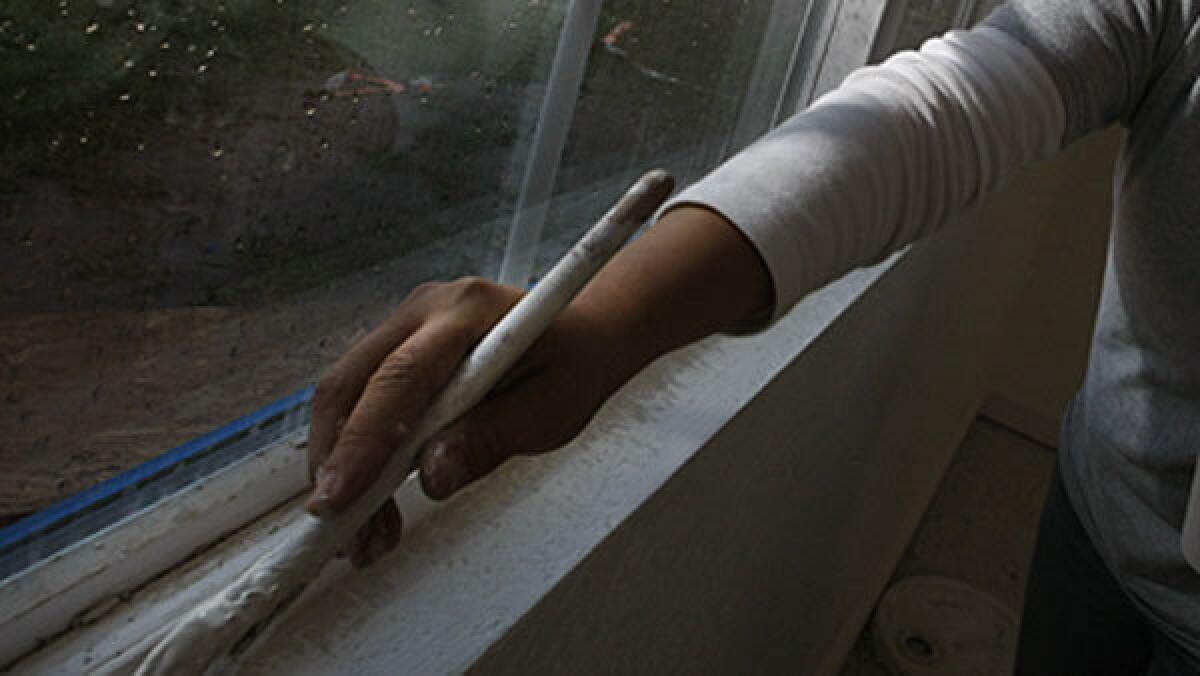Firms to pay $1.1-billion in long-running lead paint lawsuit

- Share via
A Northern California judge Monday ordered three companies to pay $1.1 billion to remove lead-based paint from inside California homes, concluding a 13-year legal case.
Santa Clara County Superior Court Judge James P. Kleinberg ruled that ConAgra, NL Industries and Sherwin-Williams created a “public nuisance” by selling lead-based paint for decades before it was banned in 1978, finding them liable for exposing children to a known poison.
The opinion set aside $605 million, or 55% of the judgment, to pay for lead removal in Los Angeles County. The money will go into a fund administered by the state’s Childhood Lead Poisoning Prevention Branch and will pay for inspections and lead abatement on the inside walls of tens of thousands of homes.
“The court is convinced there are thousands of California children in the Jurisdictions whose lives can be improved, if not saved through a lead abatement plan,” the judge’s ruling said.
Local governments sued major paint manufacturers in 2000, alleging they promoted the use of lead-based paint even though its dangers had been known for many decades. Ten California cities and counties joined the case seeking to hold country’s largest paint companies accountable. The case went to trial in July.
The companies, however, argued that they never deliberately sold a hazardous product and relied on experts that did not determine the levels of lead in their paints were a public health problem until they were taken off the market in the 1970s.
Lead is a powerful poison that is particularly harmful to the development of young children, even at low levels. The government’s case stressed that lead paint is widely considered to be the main cause of lead poisoning for children who live in older housing.
Nearly 5 million homes in the cities and counties that sued were built before the 1978 ban and could require abatement. Many are in low-income neighborhoods.
“The people who are affected are largely poor and minority children who live in old homes that haven’t been repaired,” said Joseph Cotchett, an attorney who represented the cities and counties who backed the lawsuit.
The ruling did not hold responsible two of the companies that were sued: Atlantic Richfield and DuPont.
ALSO:
817 guns collected at L.A.’s latest buyback event, officials say
Big Sur wildfire grows to 500 acres; fire chief’s home destroyed
LAPD chief: Too early to judge fatal shooting of unarmed suspect
Twitter: @tonybarboza
More to Read
Sign up for Essential California
The most important California stories and recommendations in your inbox every morning.
You may occasionally receive promotional content from the Los Angeles Times.











